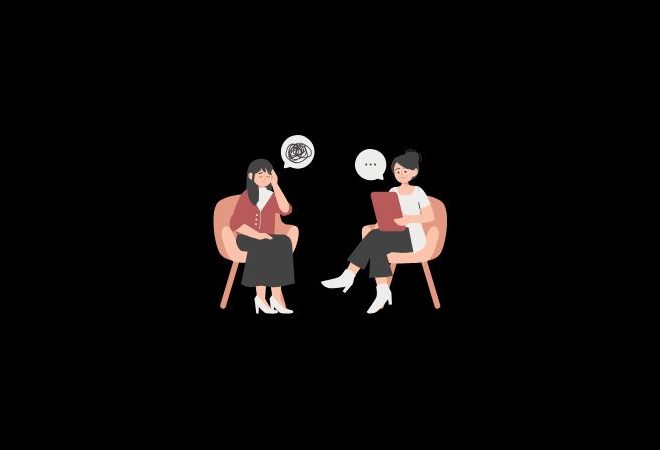
Why It’s Extra Than Simply “Additional Trauma”
Affiliate hyperlink discover: As an affiliate of BetterHelp and different third-party distributors, We are going to obtain compensation for those who make a purchase order utilizing the hyperlinks supplied on this web page. For extra info, go to our disclosure web page.
Final Up to date on June 8, 2025 by Randy Withers
“Trauma is private. It doesn’t disappear if it’s not validated. When it’s ignored or invalidated, the silent screams proceed internally.” — Danielle Bernock
Complicated PTSD isn’t simply “extra” trauma. It’s completely different trauma.
Think about being instructed that the rationale your relationships don’t work, your feelings really feel overwhelming, or you possibly can’t appear to really feel secure—even in your individual pores and skin—is simply because you have got “PTSD.” And but, the therapies don’t assist. The signs don’t make sense. The diagnoses shift from melancholy to nervousness to borderline persona dysfunction. You start to marvel if therapeutic is even attainable.
This text is for anybody who has felt misplaced within the system. Anybody who’s been instructed their trauma was “not sufficient,” or worse, misdiagnosed altogether. We’re going to discover what Complicated PTSD (C-PTSD) actually is, the way it differs from commonplace PTSD, and why so many individuals are misdiagnosed. In case you’re a trauma survivor or a clinician working in psychological well being, understanding these distinctions might change every part.

What Is Complicated PTSD?
Whereas each PTSD and C-PTSD come up from publicity to trauma, their origins, symptom profiles, and impacts differ considerably:
Trauma Kind and Length
- PTSD usually outcomes from a single, acute traumatic occasion, corresponding to an accident, assault, or pure catastrophe.
- C-PTSD develops after extended, repeated trauma, usually interpersonal and occurring throughout youth—corresponding to ongoing childhood abuse, captivity, or home violence.
This key distinction—period and relational nature of trauma—is what units the stage for the depth of C-PTSD signs.
Symptom Clusters: A Wider Lens
Each diagnoses share the core PTSD signs:
- Re-experiencing (flashbacks, nightmares)
- Avoidance
- Hyperarousal (irritability, hypervigilance)
However C-PTSD consists of three extra symptom clusters that dramatically reshape an individual’s emotional and relational world:
- Emotional dysregulation
– Power disappointment, anger, explosive reactions, and even suicidal ideas. - Destructive self-cognitions
– Persistent emotions of worthlessness, guilt, or disgrace. - Interpersonal difficulties
– Struggles with belief, intimacy, or distorted views of abusers and oneself.
These aren’t “extras.” They type the core of how the trauma shapes the individual’s inner world.
Impression on Id and Relationships
Maybe probably the most devastating impact of C-PTSD is the best way it erodes an individual’s sense of self and skill to attach with others. Survivors usually expertise:
- Problem trusting anybody—even these they love
- Feeling chronically unsafe or disconnected from actuality
- Repeated patterns of abusive or chaotic relationships
- A fragmented or unstable self-identity
C-PTSD is just not merely a matter of “extra” or “worse” trauma. Its defining options are the complexity and pervasiveness of signs, which prolong past the traditional PTSD profile. The extended, interpersonal nature of the trauma essentially alters emotional regulation, self-perception, and social functioning in methods not usually seen in commonplace PTSD.
The Drawback of Misdiagnosis
As a result of the signs of C-PTSD bleed into many different diagnostic classes, misdiagnosis is tragically widespread.
Widespread Misdiagnoses Embrace:
- Borderline Persona Dysfunction (BPD)
- Despair
- Nervousness issues
- Bipolar dysfunction
- Codependency or narcissistic traits
Penalties of Misdiagnosis:
- Sufferers could obtain therapies that solely tackle fragments of their expertise.
- Remedy could give attention to the flawed points (e.g., temper stabilization as a substitute of trauma processing).
- Survivors really feel misunderstood, annoyed, and even re-traumatized.
- Stigma will increase—particularly when labeled with misunderstood situations like BPD.
“I’ve witnessed far too many instances what occurs when trauma survivors are misdiagnosed. The misdiagnosis perpetuates the survivor’s struggling as a result of it ends in ineffective therapy.”
Why Is C-PTSD So Typically Missed?
1. Lack of Consciousness
Regardless of rising recognition globally, Complicated PTSD is just not but formally acknowledged within the DSM-5 (the first diagnostic guide within the U.S.). The World Well being Group (WHO) has included C-PTSD within the ICD-11, however in lots of international locations and clinics, it’s nonetheless flying underneath the radar.
2. Symptom Overlap
Signs like emotional instability, dissociation, self-harm, and relational chaos can look lots like temper or persona issues. However when clinicians fail to ask about trauma historical past, the true root of the problem is usually missed.
Diagnostic and Medical Implications
The excellent news? With rising training and trauma-informed care, higher prognosis and therapy are attainable.
Evaluation
Clinicians should conduct a thorough trauma historical past and search for:
- Extended trauma publicity, particularly in youth
- Patterns of interpersonal hurt
- The presence of all six C-PTSD symptom clusters (not simply the core PTSD triad)
Mapping the total symptom image is essential to getting it proper.
Therapy of Complicated PTSD
C-PTSD doesn’t reply properly to one-size-fits-all strategies. It usually requires a phased, integrative therapy method together with:
- Stabilization and emotional regulation
- Narrative remedy and trauma processing
- Relational therapeutic and rebuilding a way of identification
Modalities like:
- Inner Household Programs (IFS)
– Helps shoppers discover and heal “elements” of themselves formed by trauma - Eye Motion Desensitization and Reprocessing (EMDR)
– Facilitates the reprocessing of traumatic recollections in a structured, secure means
“I consider that treating the problems beneath dependancy is the simplest means to assist people dwell their happiest and healthiest life. The identical applies to trauma—we have to perceive what’s actually driving behaviors to undertake more healthy coping expertise that result in therapeutic.”
Actual Individuals, Actual Therapeutic
Behind each C-PTSD prognosis is an individual who endured power ache, neglect, and confusion—usually by the hands of individuals they have been imagined to belief. Understanding this situation isn’t simply scientific. It’s deeply human.
When clinicians, households, and survivors start to acknowledge C-PTSD for what it’s—a definite, multifaceted situation—we are able to start the true work of therapeutic. Which means:
- Extra correct diagnoses
- Tailor-made therapy plans
- Compassionate, trauma-informed care
- And at last, the validation that what occurred wasn’t “too small to matter”
Last Ideas
Complicated PTSD is a novel dysfunction with far-reaching implications. It’s not merely an intensified model of PTSD. Its signs are broader, deeper, and extra interconnected—rooted in extended trauma that alters how somebody sees the world and themselves.
Sadly, misdiagnosis stays one of many largest boundaries to therapeutic. With out correct recognition, survivors are left attempting to unravel a puzzle with the flawed items.
However hope exists. The psychological well being discipline is evolving. With rising consciousness, evidence-based therapies, and empathy, survivors of Complicated PTSD can and do heal.
In case you or somebody you’re keen on could also be affected by Complicated PTSD, know this: you aren’t damaged. You’re responding to insufferable ache in the one methods you’ve identified how. And with the best assist, there may be one other aspect.
Let’s begin seeing C-PTSD for what it actually is—not simply extra trauma, however a name for deeper therapeutic.
Assets and References:
Let me know for those who appreciated this submit. Your suggestions is vital!


